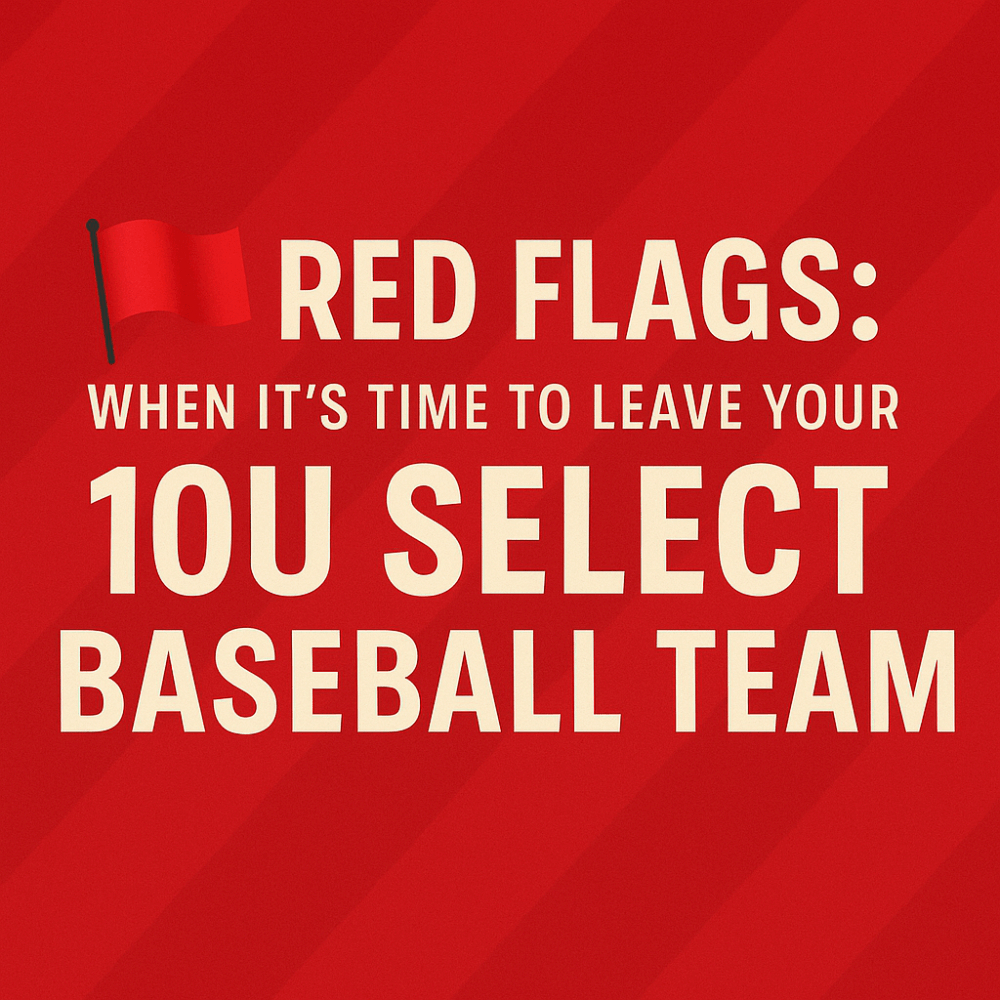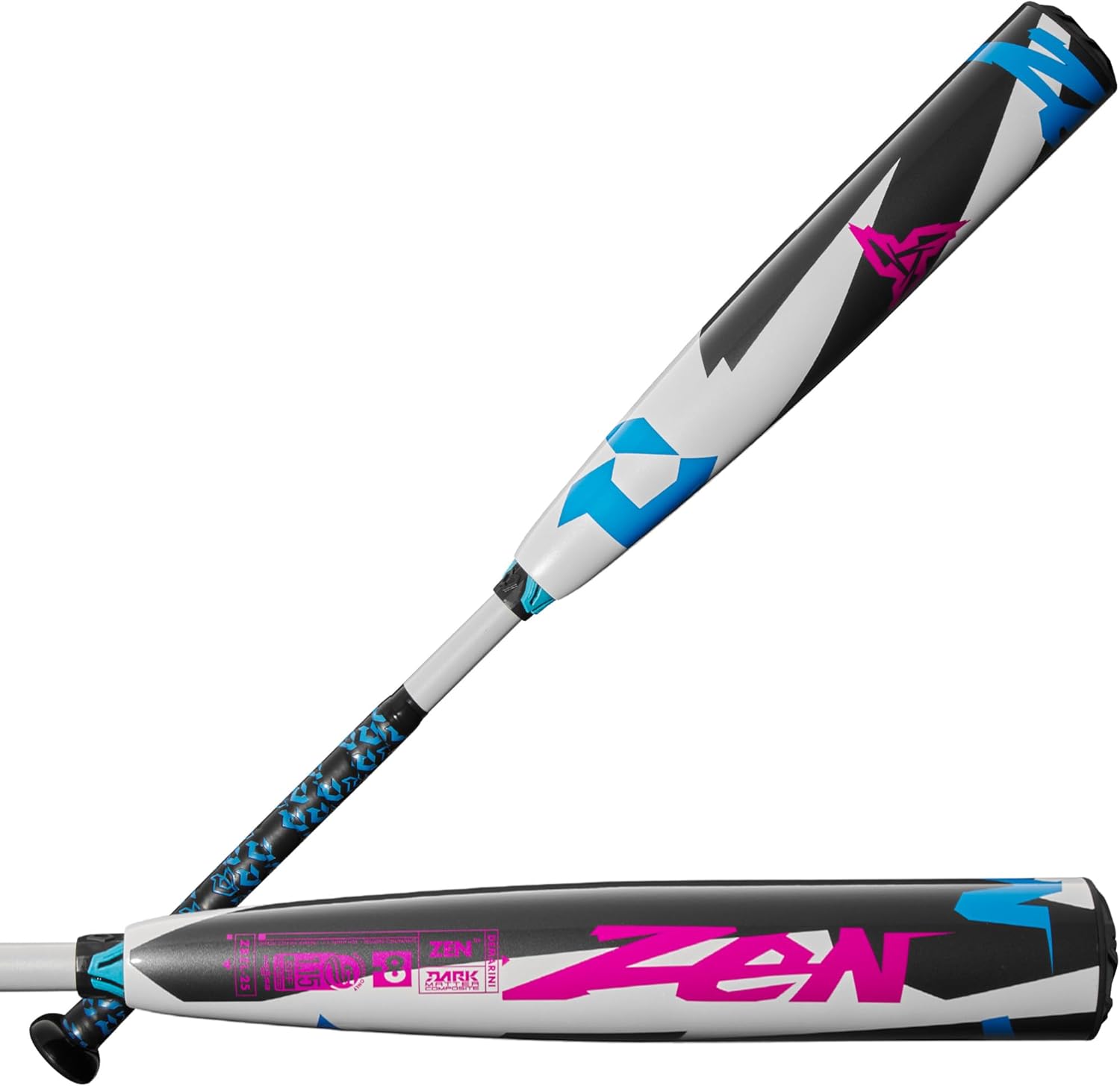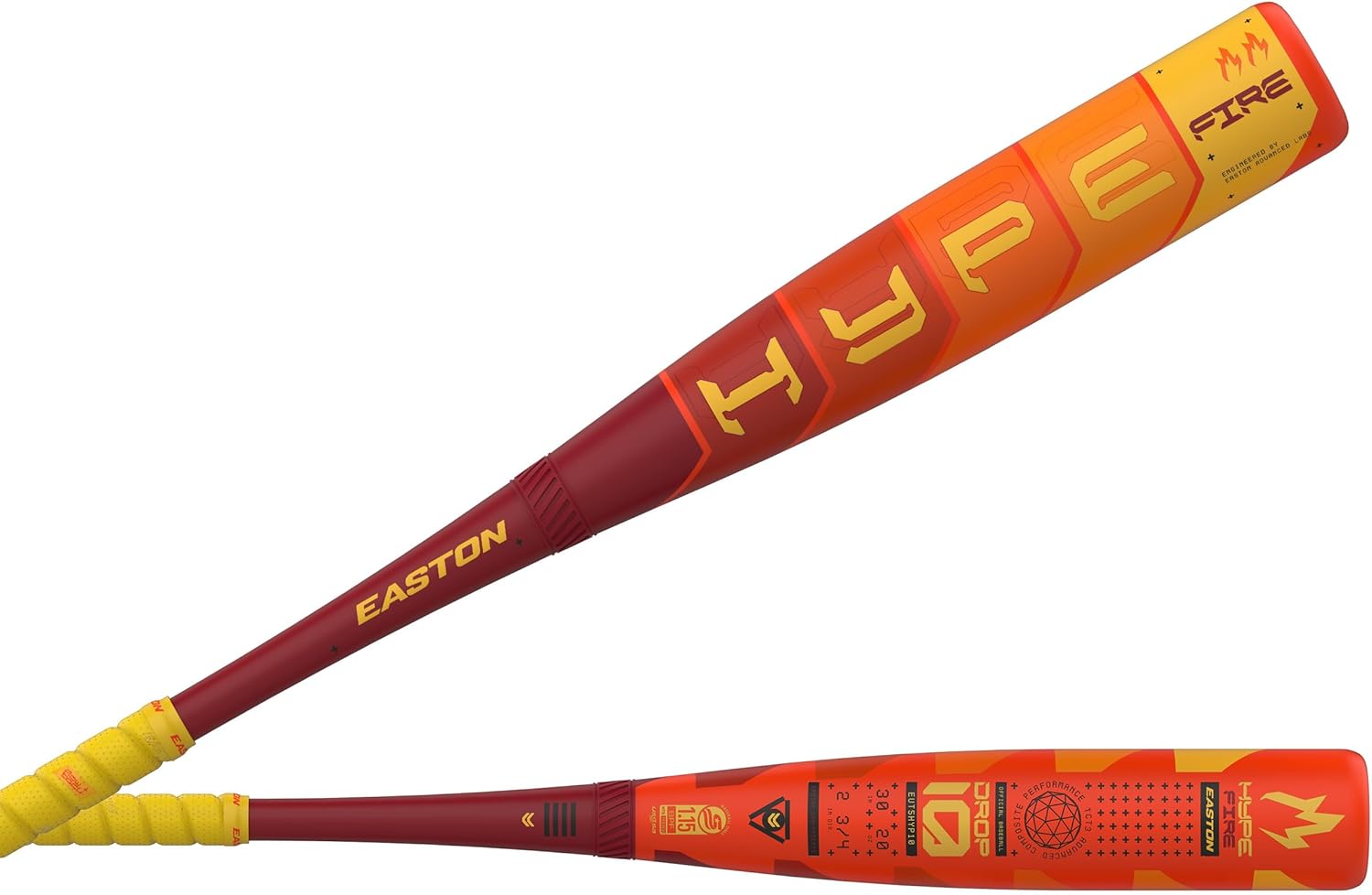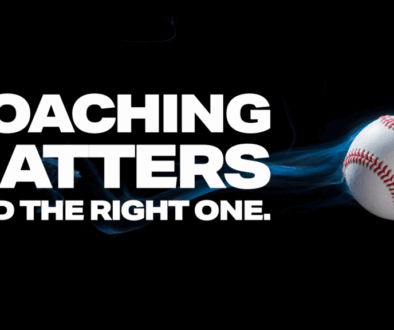8 Coaching Red Flags for 10U Select Baseball: When It Might Be Time to Leave Your Team
When your child joins a 10U select baseball team, you’re investing in more than just uniforms and tournament entries—you’re investing in their development, mindset, and love for the game. At this age, baseball should still be a learning experience filled with encouragement, structured training, and fun competition. But sometimes, the team environment doesn’t align with those values.
So how do you know if you’ve chosen the wrong team—or if it’s simply growing pains? Here are 8 red flags that may indicate it’s time to have a serious conversation… or start exploring other opportunities.
1. Development Takes a Back Seat to Winning
Select baseball can be competitive, but at 10U, development is still the primary focus. If your child is barely seeing the field, not learning new skills, or being pigeonholed into one position just to help the team win, that’s a problem.
For example: Is your shortstop not getting any time on the mound because the coach only trusts two pitchers? Has your outfielder never had a chance to play infield because “he’s fast”? A good coach rotates players, challenges them with new roles, and prioritizes learning over the scoreboard—especially in the spring season.
🚨 Ask yourself: Is my child growing as a player, or just filling a spot to help the team win games?
2. Communication Is Poor or Nonexistent
Clear communication builds trust between parents, players, and coaches. Are you constantly guessing about practice times or tournament locations? Do last-minute changes get texted out without explanation? Are feedback conversations rare—or non-existent?
Good programs keep parents in the loop. Whether it’s through a team app, email, or even a printed schedule, coaches should make an effort to set expectations and provide updates. You should also feel comfortable approaching the coach with reasonable concerns. If you’re walking on eggshells, that’s a culture issue.
🚨 Tip: If you feel like you’re always “in the dark,” you probably are.
3. Favoritism or “Daddy Ball” Runs Deep
The term “Daddy Ball” gets thrown around a lot—but let’s be honest: sometimes it’s real. If the coach’s kid or their friends are getting more opportunities regardless of performance, or if your player is benched or stuck in the outfield despite doing well, you might be seeing favoritism in action.
This doesn’t mean a coach’s kid shouldn’t play—they often work hard and earn it. But when lineups never change, roles are locked in based on relationships, and accountability is applied unequally, it sends the wrong message to kids: that who you know matters more than how hard you work.
🚨 Watch for patterns, not just one-off situations. Favoritism tends to show up over time.
4. Poor Sportsmanship or Toxic Sidelines
Baseball is emotional, but the dugout and stands should never feel toxic. If your coach is regularly yelling at umpires, blaming kids for losses, or showing disrespect toward opponents, that’s not intensity—it’s immaturity.
Worse, this kind of behavior tends to trickle down. Kids will mirror what they see. If players are taunting other teams, rolling their eyes at calls, or snapping at teammates, the culture has gone sideways.
🚨 The best teams teach confidence and character. One without the other won’t last.
5. Practices Lack Purpose or Structure
Ask your 10U player what they did at practice. If the answer is “just scrimmaged” or “hit off the tee for an hour,” that’s a red flag. At this age, every practice should have structure: warm-ups, skill stations, situational drills, and time for instruction and questions.
You’re paying for coaching—not babysitting. If practices feel like chaos or filler, it could mean the coaching staff lacks a developmental plan.
🚨 Strong programs value practice as much—or more—than tournament play.
6. Too Many Tournaments, Not Enough Rest
It’s tempting to say yes to every weekend invite, especially when the team is chasing rankings or rings. But over-scheduling 10U players can lead to physical and emotional burnout. These kids are still learning how to recover, focus, and handle pressure.
If your team is playing 4-5 weekends in a row with minimal practice in between, there’s not enough time for skill-building—or just being a kid. Look for a team that values quality reps over constant travel.
🚨 Balance matters. A worn-out player won’t stay motivated for long.
7. The Coach Doesn’t Know (or Respect) Age-Appropriate Expectations
Sometimes, the issue isn’t effort—it’s awareness. If a coach expects 10U players to perform like high schoolers, they may be setting unrealistic standards. That could mean demanding perfection, punishing kids for mental mistakes, or pushing velocity over mechanics.
You should hear phrases like:
✅ “Let’s focus on the fundamentals.”
✅ “Mistakes are part of learning.”
✅ “Effort over outcome.”
🚨 If the coaching staff seems out of touch with what’s realistic for 10-year-olds, they may be doing more harm than good.
8. Your Player Is No Longer Having Fun
At the end of the day, this one is non-negotiable. If your child—who once loved the game—is now dreading practice, complaining about teammates, or asking to quit, listen. Yes, baseball gets hard. But at 10U, it should still be fun.
Sometimes, the issue isn’t the sport. It’s the environment.
🚨 You don’t have to stay in a situation that kills your child’s love for the game.
What To Do If You Spot These Red Flags
If several of these signs are starting to show up, take a breath before making a quick move. Start by:
-
Talking to your child honestly about how they feel
-
Observing practices and games without emotion
-
Asking the coach for a constructive conversation
-
Reaching out to other trusted parents for perspective
If things don’t improve—or your gut tells you it’s just not a good fit—trust that instinct. There are plenty of great programs in North Texas that blend development, competition, and positivity.
Remember: You’re not just choosing a team—you’re choosing a community that influences your child’s growth, confidence, and relationship with the game.
TL;DR:
Watch out for red flags like poor communication, lack of development, favoritism, toxic team culture, and burnout. At 10U, the right select baseball team should challenge your child, build confidence, and keep the game fun. If that’s no longer happening, it’s okay to explore a better fit.









